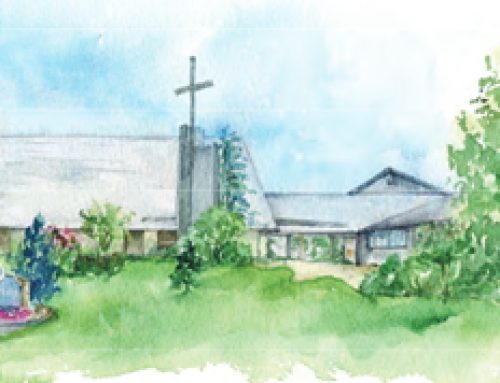FROM THE PASTOR’S DESK
Dear Parishioners,
In today’s gospel parable, we know more about the two sons than we know about the father. The first son tells his father that he will not go into the vineyard, but later he changes his mind and goes. The second son says that he is on his way into the vineyard but never shows up. But we are not given any reaction of the father to these choices. When the first son says he will not go, we are not told whether the father was shocked, disappointed, or angry. When the father finds out that the second son never showed up, we are not told whether he felt deceived or manipulated. The only thing we know about the father is that he asked each of his sons to go into the vineyard. And I think that this lack of information is intentional, because it makes the father of the parable like us.
In our relationships, we are not able to control what other people say or what they do. All we are able to do is like the father says, “This is what is in my heart. This is what I desire. This is what I think is important,” and then let other people respond. We might find someone whom we want to be a part of our life, someone we want to treasure as a friend or a spouse. All we can do is say what is in our heart. “I like you a lot. Will you spend time with me? Will you marry me?” We might find that the response is, “That is wonderful. We can make this work.” But later we discover that that person cannot follow through. We could also receive the response, “Whoa, that’s too soon. I am not ready to make a commitment.” But later discover that the person returns and says, “Let’s talk.”
We might have a deep desire that our son or daughter lives a life of service, caring for other people. All we can do is share how we think that is important. We can say, “As you build your life, I hope that you find room to serve others, that you care for those that less fortunate.” We might find that our child says, “Of course, Dad. I know that that’s important.” But later we watch as she builds her life only for her own success and comfort. Another child might say, “Back off, Mom. I’m looking to make money. I want to be able to have whatever I need or desire.” But later we find out that he spends his time on the weekends at a soup kitchen and involves himself with groups working for economic justice.
We might have someone that we love in our family or friends who we think is going through a difficult time. We want to be present. We want to help. All we can do is express that intention: “Are things ok with you? You look sad. Is there anything I can do to help?” The person might respond, “We’re close, and if anything was wrong, you would be the first to know.” But they tell us nothing. Another person might say, “There are issues, but I have to keep some things to myself.” Then later they contact us and open up, and we are able to share their pain.
We cannot control what another person says or does. We can only share what we believe, what we think is important, and then let them respond. Now, of course, many times the person will both say and do that which we think is the best. But today’s parable reminds us that is not always the case. Frequently, a person will respond in a way that is lacking—either in their words or in their deeds. And when that happens, the message of today’s parable is that it does us no good to explode in anger or to nurture discouragement and resentment. People are free. And all we can do is, like the father in the parable, express what is in our hearts, and then place others and their responses in God’s hands.
Peace,
Fr. Monteleone
To read the complete bulletin click here



